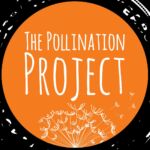Racheal Inegbedion was visiting a home for people with disabilities when she saw something that changed her life.
“When someone visits, the residents sing a welcome song and share in a prayer with their guests,” remembers Racheal. “One of the young women, who had a beautiful voice, sang longer than I suppose the workers thought she should. I saw the worker strike the young woman and tell her to be quiet! I was so angry.”
Racheal spoke to the head of the home and the worker apologized, but Racheal left feeling like she needed to do more. As she thought of the lives of people with disabilities in Nigeria, she realized that it wasn’t just a situation with that individual worker that needed to change. Her community as a whole needed to see people with disabilities for their full humanity, potential, and dignity. She began to dream of what was possible.
“I think the hardest thing about being a changemaker is starting. That is my biggest advice to anyone who wants to make a difference. Don’t worry about whether you will fail, what barriers you might encounter, or what people will think. Just take the steps you can, and do it now. Just start,” says Racheal.
And so, Racheal started.
She organized a community project to educate caregivers and families on building their capacity for empathy, expanding their emotional intelligence, and other psychological muscles they could flex to better serve children and youth adults with disabilities. Since that time, she has gone on to offer career development services, awareness days in the community, and advocacy for policies that impact people with disabilities. She has offered programs in STEM, robotics, and assistive technology for children and others with special needs. Most recently, she organized an entrepreneurship accelerator for young mothers of special needs children in partnership with the Let Cerebral Palsy Kids learn Foundation. The Pollination Project has been honored to support Racheal’s work, which has since been recognized by the UN, Ashoka among others.
“The need is so great, and sometimes people ask me if I want to give up,” says Racheal. “Of course not! I am resilient. I think about a world of inclusion and I focus on this goal. I am led by empathy. I don’t think about the barriers. Just this beautiful goal and vision for what the world could be.”


